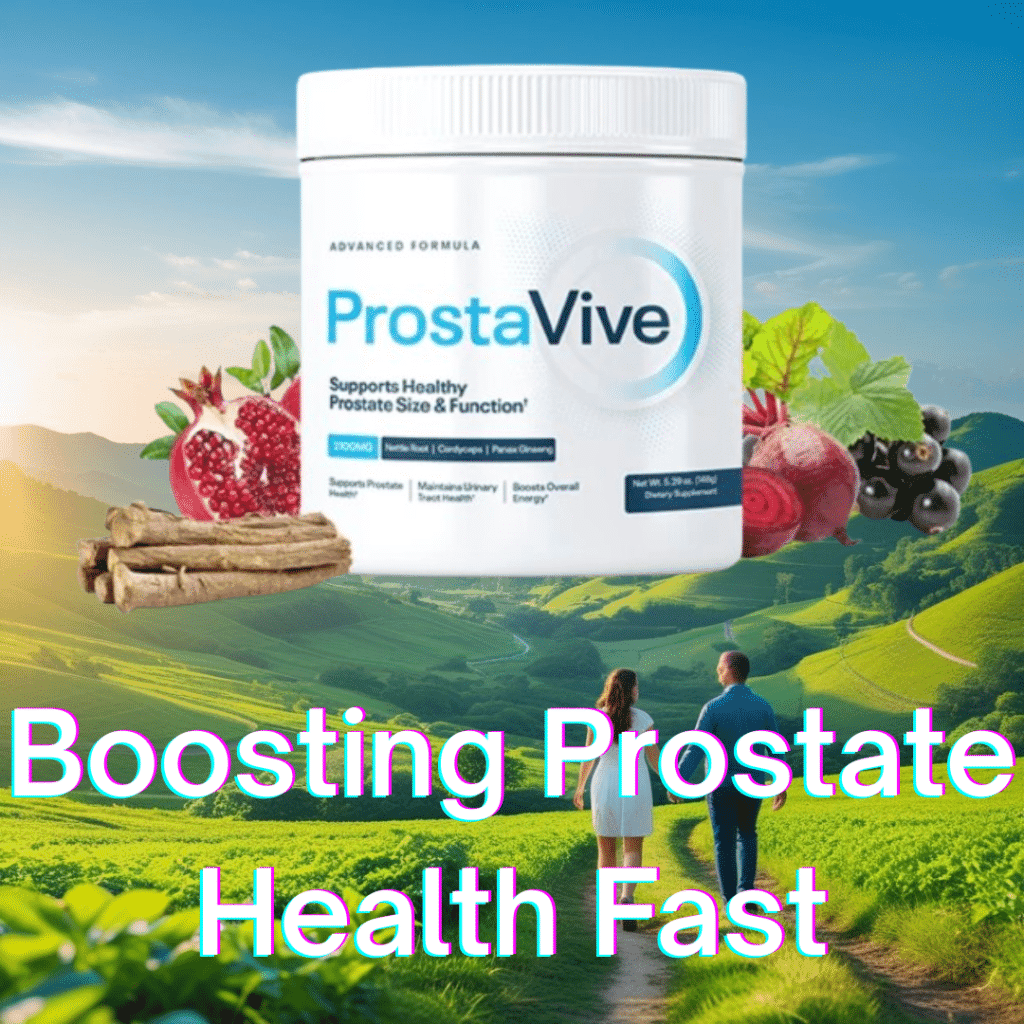In the world of fitness, the importance of nutrition in fitness cannot be overstated. It’s like trying to do a high-intensity workout without breaking a sweat – just not possible! In this comprehensive and entertaining guide, we’re going to unravel the critical role that nutrition plays in fueling your body for optimal performance in fitness. Whether you’re a seasoned athlete or just dipping your toes into the world of fitness, understanding how to nourish your body properly can make all the difference in achieving your goals. So, grab a protein shake, get cozy, and prepare to embark on a mouthwatering journey through the delicious realm of nutrition and fitness!
Nutrition plays a crucial role in achieving fitness goals. While exercise is important, it is only one piece of the puzzle. Proper nutrition provides the body with the fuel it needs to perform at its best and recover effectively. Without a balanced diet, individuals may struggle to see progress and experience negative health outcomes.
Overview

Fundamentals of Nutrition and Fitness
To understand the importance of nutrition in fitness, it is essential to have a basic understanding of the fundamentals. Macronutrients, such as carbohydrates, protein, and fat, are the building blocks of a healthy diet. Each macronutrient serves a specific purpose in the body and plays a role in physical activity. Micronutrients, such as vitamins and minerals, are also important for overall health and wellness.
Dietary Needs for Physical Activity
Physical activity increases the body’s demand for energy, making it necessary to adjust dietary intake accordingly. Adequate carbohydrate intake is crucial for fueling exercise, while protein is necessary for muscle repair and growth. Fat also plays a role in energy production and helps regulate hormones. Hydration is also essential for optimal performance, as even mild dehydration can impair physical and cognitive function.
Key Takeaways
- Proper nutrition is essential for achieving fitness goals and maintaining overall health.
- Macronutrients and micronutrients are important components of a balanced diet.
- Adequate carbohydrate, protein, and hydration are necessary for optimal physical performance.
Fundamentals of Nutrition and Fitness
The Role of Macronutrients
In order to achieve optimal fitness and health, it is essential to understand the role of macronutrients in the body. Macronutrients are the nutrients that the body needs in large amounts to function properly, including carbohydrates, protein, and fat.
Carbohydrates are the primary source of energy for the body, providing fuel for physical activity and brain function. Protein is essential for building and repairing muscle tissue, and also plays a role in immune function and hormone production. Fat is important for energy storage, insulation, and the absorption of certain vitamins.
It is important to consume a balanced diet that includes all three macronutrients in the appropriate amounts. The recommended daily intake of carbohydrates is 45-65% of total calories, protein is 10-35% of total calories, and fat is 20-35% of total calories.
Understanding Calories and Energy Balance
Calories are a measure of the energy content of food and beverages. In order to maintain a healthy weight, it is important to balance the number of calories consumed with the number of calories burned through physical activity.
Consuming too many calories without burning them off through exercise can lead to weight gain and an increased risk of chronic diseases such as diabetes and heart disease. On the other hand, consuming too few calories can lead to malnutrition and a weakened immune system.
It is important to find the right balance of calories and physical activity to maintain a healthy weight and support overall health and fitness. This can be achieved through a combination of healthy eating habits and regular exercise.
Dietary Needs for Physical Activity

Proper nutrition is essential for anyone engaging in physical activity. Athletes, in particular, require a balanced and nutritious diet to support their high levels of physical activity and maintain optimal performance. The following subsections will discuss some key aspects of dietary needs for physical activity.
Nutrient Timing and Performance
The timing of nutrient intake is crucial for optimal performance during physical activity. Eating a meal high in carbohydrates a few hours before exercising can provide the body with the necessary energy to perform at its best. Consuming protein after exercise can also aid in recovery and muscle building.
It is important to note that the timing of nutrient intake can vary depending on the type and duration of physical activity. For example, endurance athletes may require more carbohydrates during exercise to maintain energy levels, while strength athletes may need more protein to support muscle growth.
Hydration and Its Effects on Fitness
Hydration is another crucial aspect of nutrition for physical activity. Adequate water intake is essential for maintaining proper bodily functions and preventing dehydration. Athletes should aim to drink water before, during, and after exercise to maintain hydration levels.
In addition to water, electrolytes such as sodium and potassium are also important for hydration and muscle function. Sports drinks can be a good source of electrolytes, but they should be consumed in moderation as they can be high in sugar.
In conclusion, proper nutrition is essential for anyone engaging in physical activity, especially athletes. Nutrient timing and hydration are key aspects of nutrition that should be carefully considered to support optimal performance and overall health.
Customizing Nutrition for Fitness Goals

Nutrition is a crucial component of fitness. It provides the body with the energy and nutrients it needs to perform optimally during workouts and recover effectively afterward. However, not all nutrition plans are created equal, and different fitness goals require different approaches to nutrition. Here are some tips for customizing nutrition to fit specific fitness goals.
Nutrition for Weight Management
For those looking to manage their weight, nutrition is key. The number of calories consumed versus the number of calories burned will determine whether someone gains, loses, or maintains their weight. To achieve weight loss, a calorie deficit is necessary, which can be achieved through a combination of diet and exercise. A diet that is high in protein and fiber and low in refined carbohydrates and saturated fat can help promote weight loss while preserving muscle mass.
Eating for Muscle Gain and Recovery
For those looking to build muscle or recover from intense workouts, nutrition is critical. Adequate protein intake is necessary to build and repair muscle tissue, while carbohydrates are essential for fueling workouts and replenishing glycogen stores afterward. Eating a meal containing both protein and carbohydrates within 30 minutes of a workout can help jumpstart the recovery process.
Nutrition for Endurance Athletes
Endurance athletes require a different approach to nutrition than those focused on weight management or muscle gain. Carbohydrates are the primary fuel source for endurance exercise, so a diet that is high in carbohydrates is essential. Adequate protein intake is also necessary to support muscle recovery and repair. Endurance athletes should aim to consume a meal containing carbohydrates and protein within 30 minutes of completing a workout to promote recovery.
Customizing nutrition to fit specific fitness goals can help individuals achieve optimal results. By focusing on the right combination of macronutrients and timing meals appropriately, individuals can fuel their bodies for optimal performance and recovery.
The Impact of Diet on Fitness Outcomes

Maintaining a healthy diet is essential for achieving optimal fitness outcomes. The food we eat provides the necessary fuel for our bodies to function, and the right balance of nutrients can help us build muscle, increase endurance, and improve overall health. In this section, we will explore the impact of diet on fitness outcomes and discuss how to balance diet and exercise for optimal health.
Balancing Diet and Exercise for Optimal Health
Balancing diet and exercise is crucial for achieving optimal health. While exercise is essential for building muscle and burning calories, diet plays a significant role in providing the necessary nutrients for our bodies to function correctly. Eating a well-balanced diet that includes a variety of fruits, vegetables, whole grains, and healthy fats can provide the necessary nutrients to support exercise and promote overall health.
It is essential to consume enough calories to fuel your workouts and support muscle growth. However, it is equally important to avoid overeating, as excess calories can lead to weight gain. A healthy diet should consist of a balance of carbohydrates, protein, and healthy fats.
Food Choices and Meal Planning
Making healthy food choices and planning meals in advance can help ensure that you are consuming the right balance of nutrients to support your fitness goals. Eating a variety of fruits and vegetables can provide essential vitamins and minerals, while whole grains and lean protein can help provide the necessary fuel for exercise.
Healthy fats, such as those found in nuts, seeds, and avocados, can help reduce inflammation and improve heart health. It is essential to limit processed foods, sugary drinks, and foods high in saturated and trans fats, as these can increase the risk of heart disease, diabetes, and other health problems.
In conclusion, maintaining a healthy diet is essential for achieving optimal fitness outcomes. Balancing diet and exercise, making healthy food choices, and planning meals in advance can help ensure that you are consuming the right balance of nutrients to support your fitness goals. By incorporating a variety of fruits, vegetables, whole grains, and healthy fats into your diet, you can improve overall health and achieve your fitness goals.
Supplementation and Sports Nutrition

When and What Supplements to Consider
Supplements can be a useful addition to a well-balanced diet, but they should not be relied upon as a substitute for whole foods. When considering supplements, it is important to consult with a healthcare professional or registered dietitian to determine which ones are appropriate for individual needs.
Some supplements that may be beneficial for athletes include:
- Protein powders: Protein is essential for muscle growth and repair, and protein powders can be a convenient way to increase protein intake. Whey protein is a popular choice due to its high quality and fast absorption rate.
- Creatine: Creatine is a naturally occurring compound that can increase muscle strength and power, making it a popular supplement among athletes. It is important to note that creatine should not be used by individuals with kidney problems.
- Beta-alanine: Beta-alanine is an amino acid that can increase muscle endurance by reducing fatigue. It is often found in pre-workout supplements.
- Vitamin D: Vitamin D is important for bone health and immune function, and it may also play a role in muscle function. Athletes who train indoors or live in areas with limited sun exposure may be at risk for vitamin D deficiency.
The Truth About Sports Drinks
Sports drinks are marketed as a way to enhance athletic performance by providing hydration and electrolytes. While they can be beneficial for intense or prolonged exercise, they are not necessary for most people.
In fact, many sports drinks are high in sugar and calories, which can contribute to weight gain and other health problems. Water is typically sufficient for most workouts, but if an individual is engaging in prolonged or intense exercise, a sports drink with electrolytes may be beneficial.
It is important to read labels and choose sports drinks with minimal added sugars and artificial ingredients. Alternatively, a homemade electrolyte drink can be made by mixing water, lemon juice, honey, and a pinch of salt.
Overall, supplementation and sports nutrition can be useful tools for athletes looking to enhance their performance, but they should not be relied upon as a substitute for a well-balanced diet. It is important to consult with a healthcare professional or registered dietitian to determine individual needs and appropriate supplements.
Nutrition Strategies for Specific Populations

Nutrition for Professional Athletes vs. Amateurs
Professional athletes and amateurs have different nutrition needs. Professional athletes require more energy and nutrients to support their rigorous training, performance, and recovery. They also need to maintain a lean body mass and low body fat percentage to improve their performance. Therefore, their diet should be high in carbohydrates, protein, and healthy fats, and low in processed and unhealthy foods.
On the other hand, amateur athletes may not require as many nutrients as professional athletes, but they still need to eat a balanced diet to support their physical activity and fitness level. They should consume a diet that is high in fruits, vegetables, whole grains, lean protein, and healthy fats. They should also avoid processed and unhealthy foods, as they can negatively affect their performance and recovery.
Dietary Considerations for Different Types of Sports
Different types of sports require different nutrition strategies. For example, endurance athletes, such as long-distance runners and cyclists, require a diet that is high in carbohydrates to support their energy needs. They should also consume adequate protein to repair and rebuild their muscles after training.
Strength and power athletes, such as weightlifters and sprinters, require a diet that is high in protein to support their muscle growth and recovery. They should also consume adequate carbohydrates to support their energy needs during training.
Sports that require a combination of endurance and strength, such as soccer and basketball, require a balanced diet that is high in both carbohydrates and protein. Athletes should also consume adequate healthy fats to support their overall health and performance.
In conclusion, nutrition plays a crucial role in the performance and recovery of athletes. Different populations, such as professional athletes and amateurs, and different types of sports require different nutrition strategies. A balanced diet that is high in nutrient-dense foods and low in processed and unhealthy foods can help athletes reach their full potential and improve their overall health and well-being.
Emerging Trends and Research in Sports Nutrition

Recent Findings on Nutrition and Athletic Performance
Research in sports nutrition continues to evolve as new findings emerge. Recent studies have shown that proper nutrition can enhance athletic performance in various ways. For instance, consuming a high-protein diet can increase muscle mass and strength, while consuming carbohydrates before exercise can improve endurance and delay fatigue.
Another recent finding is that consuming certain nutrients, such as omega-3 fatty acids and antioxidants, can reduce inflammation and oxidative stress, which are common in athletes. Inflammation and oxidative stress can lead to muscle damage and hinder recovery, so reducing them can improve overall performance.
Moreover, research has shown that timing and type of nutrient intake can affect athletic performance. For example, consuming protein and carbohydrates immediately after exercise can enhance muscle recovery and glycogen replenishment. Additionally, consuming caffeine before exercise can improve focus and endurance.
Future Directions in Fitness Nutrition
As research in sports nutrition continues to advance, new trends and directions are emerging. One of these trends is the use of personalized nutrition plans based on an individual’s genetics, microbiome, and lifestyle factors. This approach aims to optimize nutrient intake for each person’s unique needs, which can enhance athletic performance and overall health.
Another emerging trend is the use of plant-based diets in sports nutrition. Plant-based diets have been shown to provide adequate nutrients for athletes while also reducing inflammation and improving recovery. Furthermore, plant-based diets are more sustainable and environmentally friendly than animal-based diets.
In addition, research is exploring the use of supplements and functional foods to enhance athletic performance. For instance, some supplements, such as creatine and beta-alanine, have been shown to improve muscle mass and strength. Functional foods, such as tart cherry juice and beetroot juice, can improve endurance and reduce inflammation.
In conclusion, emerging trends and research in sports nutrition are providing new insights into how proper nutrition can enhance athletic performance. With personalized nutrition plans, plant-based diets, and the use of supplements and functional foods, athletes can optimize their nutrient intake and achieve their fitness goals.
Frequently Asked Questions

How does proper nutrition enhance athletic performance?
Proper nutrition provides the necessary fuel and nutrients for the body to perform optimally during physical activity. Consuming adequate amounts of carbohydrates, protein, and healthy fats can improve endurance, strength, and speed. Additionally, proper hydration is crucial for maintaining performance and preventing fatigue.
What are the top three benefits of combining a balanced diet with regular exercise?
Combining a balanced diet with regular exercise can lead to numerous benefits, including weight loss or maintenance, improved cardiovascular health, and increased muscle strength and endurance. A balanced diet can also improve mental health and cognitive function, leading to better focus and productivity.
Which dietary components are crucial for muscle recovery and growth?
Protein is essential for muscle recovery and growth, as it provides the necessary building blocks for muscle tissue. Carbohydrates are also important for replenishing glycogen stores in muscles, which can be depleted during exercise. Adequate hydration is also crucial for muscle recovery and preventing injury.
How can nutrition impact one’s energy levels during physical training?
Consuming a balanced diet with adequate amounts of carbohydrates and healthy fats can provide sustained energy throughout physical training. Hydration is also important for maintaining energy levels and preventing fatigue. Avoiding processed and sugary foods can help prevent energy crashes and improve overall energy levels.
What role does nutrition play in achieving and maintaining optimal body composition?
Nutrition plays a crucial role in achieving and maintaining optimal body composition. Consuming a balanced diet with adequate amounts of protein, carbohydrates, and healthy fats can help build and maintain muscle mass while reducing body fat. Proper hydration is also important for maintaining a healthy body composition.
In what ways does nutrition contribute to overall physical development and well-being?
Nutrition is essential for overall physical development and well-being. A balanced diet with adequate amounts of nutrients can improve cardiovascular health, strengthen bones and muscles, and prevent chronic diseases. Proper hydration is also important for maintaining physical health and preventing injury.
In conclusion, the importance of nutrition in fitness is not just a fad or trend – it’s the real deal. By now, you’ve learned how crucial it is to fuel your body for optimal performance in fitness, and hopefully, you’ve picked up some valuable tips along the way. As you continue on your fitness journey, remember that what you eat is just as important as how you exercise. So go ahead, whip up a nutritious post-workout meal, pat yourself on the back, and get ready to conquer your fitness goals like never before. Here’s to a healthy, happy, and deliciously nourished life!










